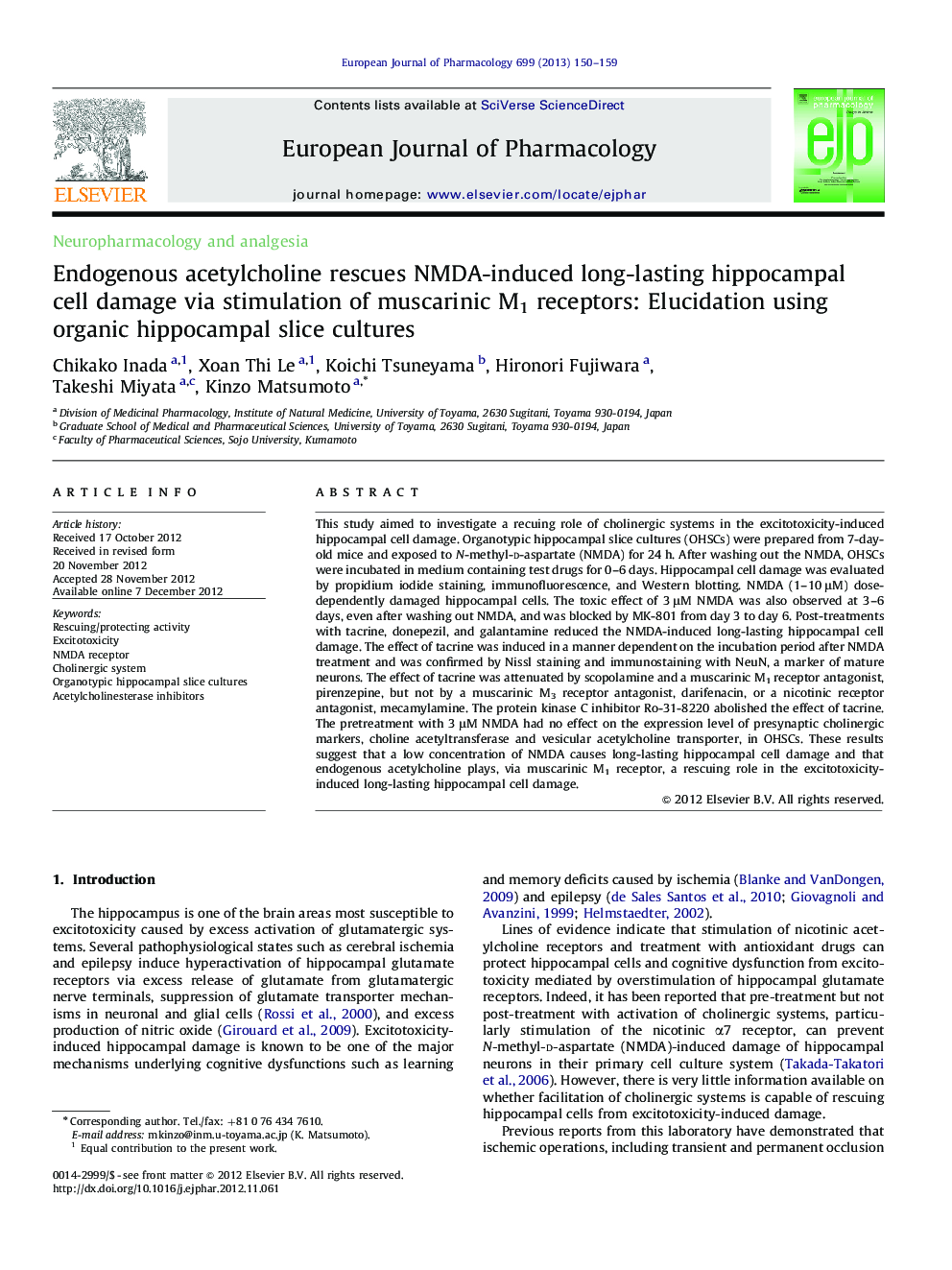| کد مقاله | کد نشریه | سال انتشار | مقاله انگلیسی | نسخه تمام متن |
|---|---|---|---|---|
| 5829069 | 1558982 | 2013 | 10 صفحه PDF | دانلود رایگان |

This study aimed to investigate a recuing role of cholinergic systems in the excitotoxicity-induced hippocampal cell damage. Organotypic hippocampal slice cultures (OHSCs) were prepared from 7-day-old mice and exposed to N-methyl-d-aspartate (NMDA) for 24 h. After washing out the NMDA, OHSCs were incubated in medium containing test drugs for 0-6 days. Hippocampal cell damage was evaluated by propidium iodide staining, immunofluorescence, and Western blotting. NMDA (1-10 μM) dose-dependently damaged hippocampal cells. The toxic effect of 3 μM NMDA was also observed at 3-6 days, even after washing out NMDA, and was blocked by MK-801 from day 3 to day 6. Post-treatments with tacrine, donepezil, and galantamine reduced the NMDA-induced long-lasting hippocampal cell damage. The effect of tacrine was induced in a manner dependent on the incubation period after NMDA treatment and was confirmed by Nissl staining and immunostaining with NeuN, a marker of mature neurons. The effect of tacrine was attenuated by scopolamine and a muscarinic M1 receptor antagonist, pirenzepine, but not by a muscarinic M3 receptor antagonist, darifenacin, or a nicotinic receptor antagonist, mecamylamine. The protein kinase C inhibitor Ro-31-8220 abolished the effect of tacrine. The pretreatment with 3 μM NMDA had no effect on the expression level of presynaptic cholinergic markers, choline acetyltransferase and vesicular acetylcholine transporter, in OHSCs. These results suggest that a low concentration of NMDA causes long-lasting hippocampal cell damage and that endogenous acetylcholine plays, via muscarinic M1 receptor, a rescuing role in the excitotoxicity-induced long-lasting hippocampal cell damage.
Journal: European Journal of Pharmacology - Volume 699, Issues 1â3, 15 January 2013, Pages 150-159